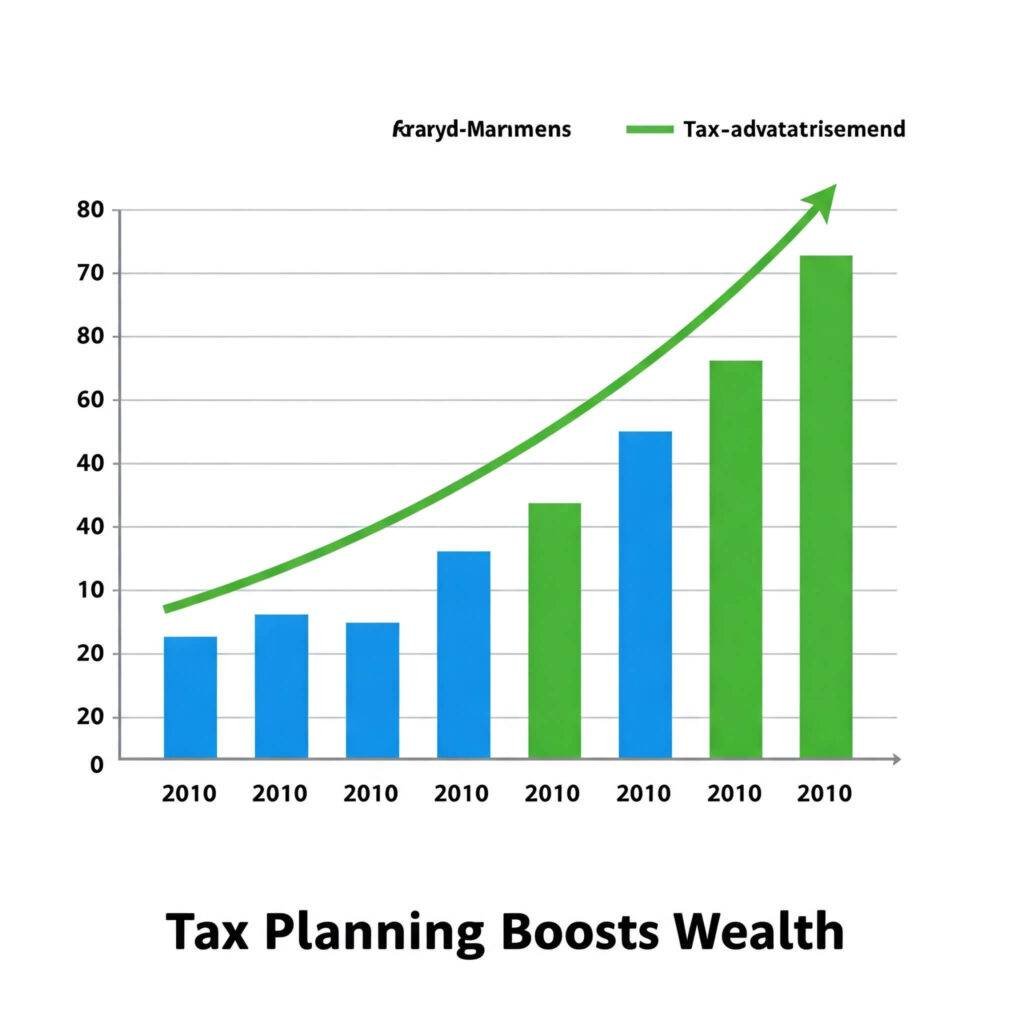Tax planning is a powerful strategy for building wealth, yet it’s often overlooked by those focused solely on earning and saving. By strategically managing your taxes, you can keep more of your hard-earned money and accelerate your financial growth. This blog explores the role of tax planning in wealth-building, offering actionable insights and real-world examples to help you maximize your financial potential.

Why Tax Planning Matters for Wealth Building
Tax planning involves structuring your finances to minimize tax liabilities while staying compliant with regulations. It’s not about evading taxes but optimizing your financial decisions to reduce what you owe. According to the IRS, taxpayers can save thousands annually by leveraging deductions, credits, and tax-advantaged accounts.
The Impact of Taxes on Your Wealth
Taxes can significantly erode your income and investments if not managed properly. For example, without planning, you might lose 20-30% of your investment gains to capital gains taxes. Strategic tax planning helps you preserve more of your wealth for reinvestment or personal goals.
- Real-World Example: Sarah, a freelance graphic designer, saved $5,000 annually by contributing to a SEP IRA, reducing her taxable income while building retirement wealth.

Key Tax Planning Strategies to Build Wealth
Effective tax planning requires a proactive approach. Below are proven strategies to help you minimize taxes and grow your wealth.
1. Leverage Tax-Advantaged Accounts
Accounts like 401(k)s, IRAs, and HSAs offer tax benefits that boost your savings. Contributions to these accounts are often tax-deductible, and earnings grow tax-free or tax-deferred.
- Actionable Tip: Max out your 401(k) contributions to reduce taxable income. In 2025, the contribution limit is $23,000 (IRS).
- Example: John, a software engineer, contributes $20,000 annually to his 401(k), saving $4,800 in taxes (24% tax bracket) while growing his retirement nest egg.
2. Optimize Investment Tax Strategies
Investment decisions can trigger significant tax consequences. Use these tactics to minimize taxes on your portfolio:
- Tax-Loss Harvesting: Sell losing investments to offset gains, reducing your tax bill.
- Long-Term Capital Gains: Hold investments for over a year to qualify for lower tax rates (0-20% vs. ordinary income rates).

3. Take Advantage of Deductions and Credits
Deductions and credits directly reduce your tax liability. Common opportunities include:
- Mortgage Interest Deduction: Deduct interest on loans up to $750,000 (IRS).
- Child Tax Credit: Claim up to $2,000 per qualifying child in 2025.
- Charitable Contributions: Donate to charities for deductions while supporting causes you care about.
4. Work with a Tax Professional
A certified tax advisor can identify personalized strategies tailored to your financial situation. They can help you navigate complex tax laws and uncover hidden savings.
- Actionable Tip: Schedule a consultation with a CPA annually to review your tax plan.
How Tax Planning Fuels Long-Term Wealth
Tax planning isn’t a one-time event—it’s an ongoing process that compounds your wealth over time. By reducing your tax burden, you free up funds to invest, save, or pay down debt. For instance, saving $5,000 annually in taxes and investing it at a 7% return could grow to over $200,000 in 20 years, per compound interest calculations.
Real-World Success Story
Consider Lisa, a small business owner who worked with a tax advisor to restructure her business as an S-corporation. This move saved her $10,000 annually in self-employment taxes, which she reinvested into her business and a Roth IRA. Over a decade, her wealth grew by $150,000, thanks to smart tax planning.
Common Tax Planning Mistakes to Avoid
Even well-intentioned individuals can make costly tax mistakes. Avoid these pitfalls to maximize your wealth-building potential:
- Ignoring Deadlines: Missing contribution deadlines for IRAs or HSAs can cost you tax savings.
- Overlooking Deductions: Failing to track expenses like home office costs or charitable donations.
- DIY Tax Filing Errors: Incorrect filings can trigger audits or missed opportunities.
Take Control of Your Wealth with Tax Planning
Tax planning is a cornerstone of building wealth, allowing you to keep more of your money and invest in your future. By leveraging tax-advantaged accounts, optimizing investments, and working with professionals, you can create a robust financial plan that accelerates your wealth-building journey. Start today by reviewing your tax strategy and consulting a professional to uncover new opportunities.
Outbound link:

